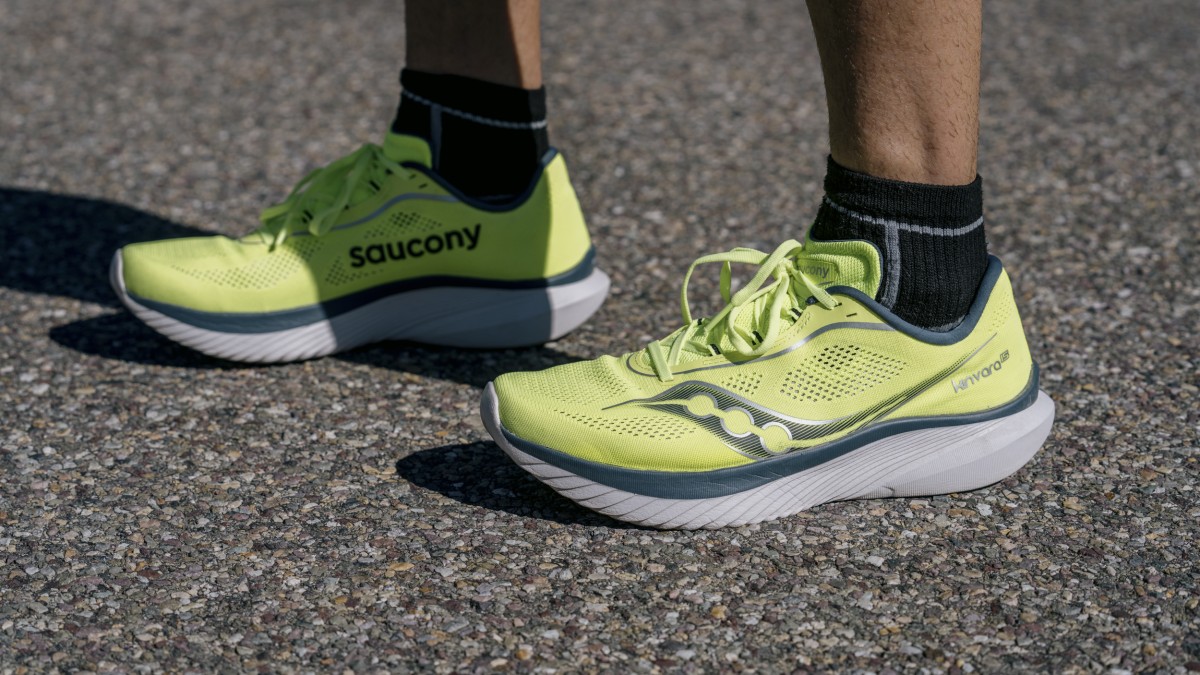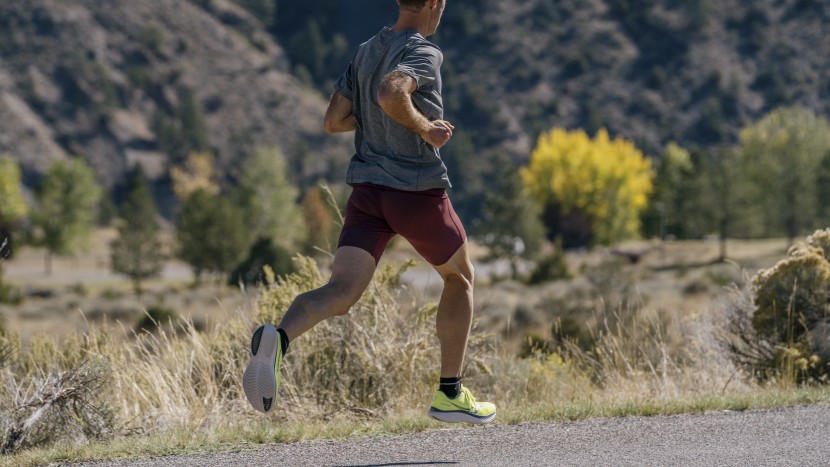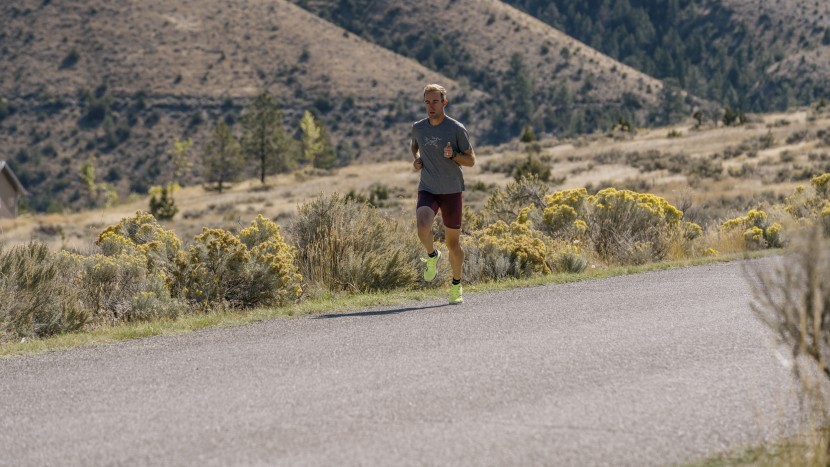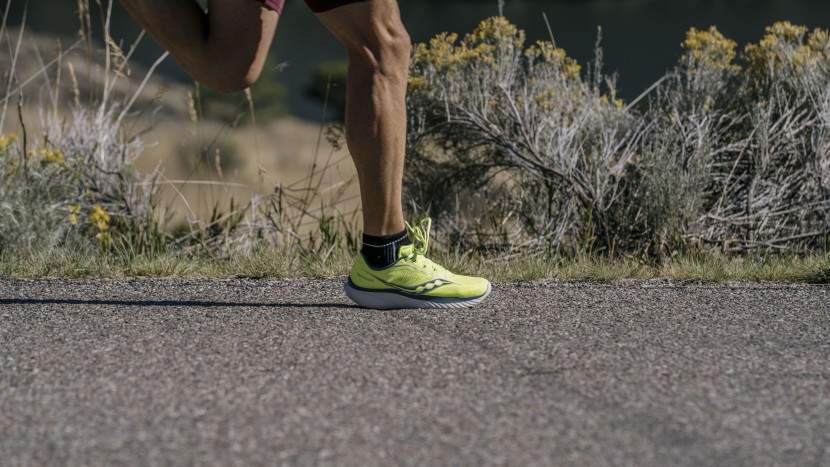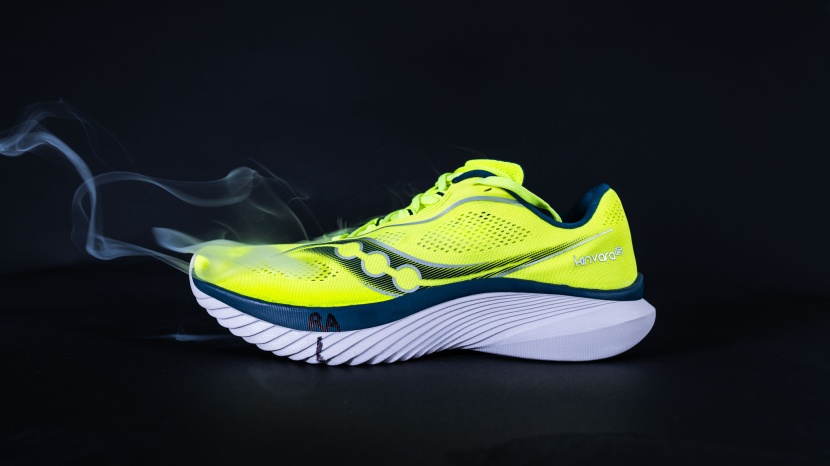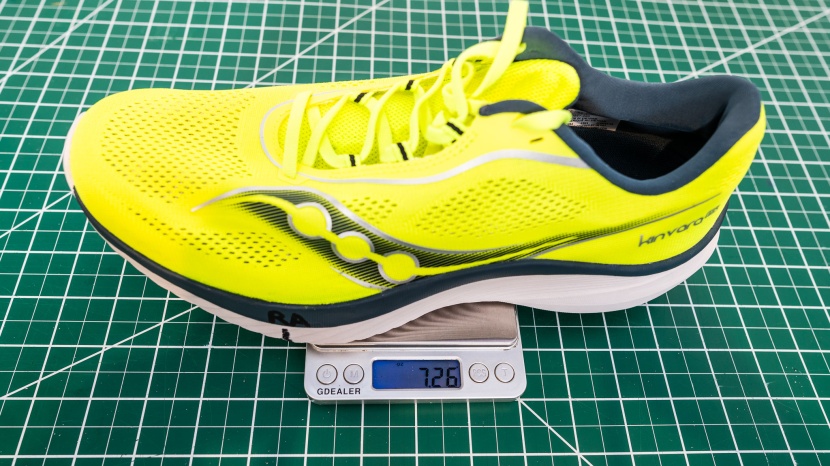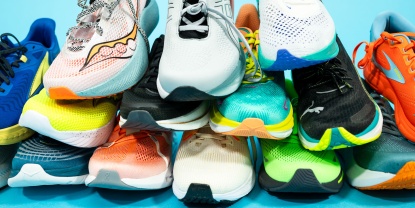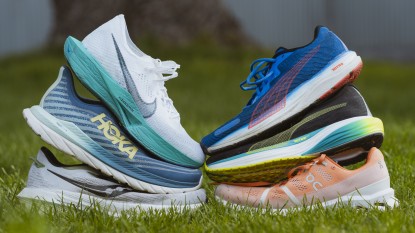Our Verdict
Compare to Similar Products
 This Product
Saucony Kinvara 15 | |||||
|---|---|---|---|---|---|
| Awards | Best Overall | Excellent Performance without a Plate | Best Shoes Under $100 | ||
| Price | $120.00 at REI Compare at 2 sellers | $140.00 at REI Compare at 2 sellers | $135.75 at Amazon Compare at 3 sellers | $135 List $134.95 at Amazon | $120 List $65.66 at Amazon |
Overall Score  |
|||||
| Star Rating | |||||
| Bottom Line | A “old-school” approach to faster running at a wallet-friendly price | A versatile and comfortable option we think most runners will love | Bouncy, responsive and well-cushioned, this shoe is performance-oriented but still versatile | A daily trainer that blends comfort and versatility at a reasonable price | Plush cushioning and a bit of pace in a budget shoe |
| Rating Categories | Saucony Kinvara 15 | Asics Novablast 5 | New Balance FuelCel... | Puma Velocity Nitro 3 | New Balance FuelCel... |
| Landing Comfort (30%) | |||||
| Responsiveness (20%) | |||||
| Stability (15%) | |||||
| Upper Comfort (15%) | |||||
| Weight (15%) | |||||
| Traction (5.0%) | |||||
| Specifications | Saucony Kinvara 15 | Asics Novablast 5 | New Balance FuelCel... | Puma Velocity Nitro 3 | New Balance FuelCel... |
| Sizes Available | 7-15 US, regular | 6-15 US, regular & wide | 7-16 US, regular & wide | 7 - 14 US, regular | 7-18 US, regular & wide |
| Style | Daily Trainer | Daily Trainer | Daily Trainer | Daily Trainer | Daily Trainer |
| Measured Heel Stack Height | 29 mm | 41 mm | 30 mm | 38 mm | 38 mm |
| Measured Heel-to-Toe Drop | 5 mm | 5 mm | 7 mm | 11 mm | 7 mm |
| Plate Type | None | None | None | None | Full-length plastic |
| Rocker Angle | 21.5 deg | 25.0 deg | 19.5 deg | 18.0 deg | 19.0 deg |
| Rocker Apex Location | 69.1% | 56.0% | 62.2% | 66.7% | 68.3% |
| Measured Weight | 7.26 oz | 9.50 oz | 7.98 oz | 10.07 oz | 10.52 oz |
| Upper | Engineered mesh | Engineered jacquard mesh | FantomFit | Engineered knit | Engineered mesh |
| Midsole | PWRRUN | FF Blast Max | FuelCell | Profoam | FuelCell |
| Outsole | Rubber | AHAR LO | Rubber | PumaGrip | Rubber |
| Heel Tab Type | None | Finger loop | None | None | None |
Our Analysis and Test Results
The Kinvara 15 is a bit of a throwback to not that long ago when stack heights were much lower, foams were firmer, and shoes were a bit less exciting. Sure, it can't keep up with today's best speed trainers or super shoes, but for the price, it's still a solid option.
Landing Comfort
Saucony used PWRRUN foam in the Kinvara, which is a decent but completely unexciting foam. It's on the firmer side and provides a good ground feel. In a move that runs counter to most other recent model updates, Saucony actually slightly decreased the stack height from the last version. We measured 29 mm of foam at the feel, down from 30 mm last year.
We think that was a good choice. Higher stack heights tend to do better with a more rockered geometry to offset the increased stiffness. Last year's iteration felt a little out of sorts, as if it wasn't sure what type of shoe it wanted to be. With the Kinvara 15, the approach is very clear. This isn't a highly-cushioned shoe. It's a moderately flexible, moderately cushioned daily trainer. That does not mean we don't love this shoe for longer efforts. The PWRRUN foam isn't very resilient, meaning it doesn't provide much bounce or energy return. Over longer efforts, we notice that. Our legs get fatigued and feel pounded earlier than they do in other shoes. We don't recommend this as a long-run shoe.
Responsiveness
We keep talking about how the Kinvara 15 is old-school, and we're going to say it again here. This is an old-school approach to responsiveness. Lower stack height, lower weight, and a firmer foam make this a solid option for faster running. No, it can't keep up with the best speed trainers or super shoes in our test, particularly over distances longer than 5K. But that low-to-the-ground feeling and firmer foam make it one of the better shoes in the lineup for short and fast workouts or for workouts on grass and uneven surfaces. Where the responsiveness of the shoe starts to lag behind is on longer efforts. We notice the lack of highly resilient foam and a plate during 30+ minute threshold sessions. We definitely notice it during longer chunks of marathon-pace running.
Stability
This isn't a stable shoe. There isn't much support from either the upper or the geometry. The lower-stack height and firm foam make it feel nimble and confident on uneven surfaces, but we don't recommend this shoe to runners who need some support.
Upper Comfort
The upper in the Kinvara 15 gained some material and a lot of comfort. Last year's version was lightweight to the point of slight discomfort. This update brings softer mesh, slightly more padding around the heel collar, and a more comfortable sockliner. It's a simple yet well-executed upper.
Weight
This is a very lightweight daily trainer, coming in at just 7.26 ounces per shoe (size 10.5) in our testing. That low weight is key to its fast feel. However, some of that is accomplished by having less foam than other shoes, which compromises its ability to handle longer runs. We're curious what this shoe would feel like with the same stack height and more resilient foam.
Traction
Traction is the weak point of the Kinvara 15. The exposed midsole in place of true rubber coverage makes the shoe prone to slipping when running fast on wet surfaces. The exposed midsole tread pattern does provide a bit of grip on looser surfaces, but it just doesn't feel as confident as we'd like.
Should You Buy the Saucony Kinvara 15?
If you want a go-fast shoe for far less than most other options in our lineup, then check this shoe out. But you should be aware that it is far from the best option for longer distances. For slightly more money, you can get an equally responsive and light yet more versatile option. This is a shoe for runners who like a low-to-the-ground, firmer feel in their daily trainer.
What Other Running Shoes Should You Consider?
The New Balance FuelCell Rebel v4 is a great alternative. It pairs a more resilient foam and higher stack with an extremely lightweight upper to offer a more versatile shoe. It has a similar overall weight but can handle longer efforts more comfortably. Similarly, the Hoka Mach 6 is a great lightweight daily trainer with significantly improved overall versatility.


